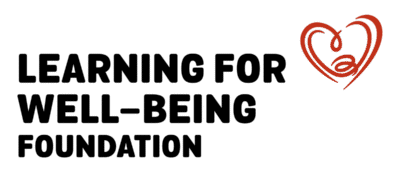[Project Summary]
The UN Convention on the Rights of the Child (CRC) establishes economic, social, cultural, civil, political, and participation rights of persons under 18 years. Since its adoption in 1989, it has been ratified by 196 countries. As an early leader in child rights advocacy, Canada helped draft the CRC and was an early adopter, but Canada’s advancement of CRC principles has since waned, reflecting a global stagnation in child rights progress. The International & Canadian Child Rights Partnership (ICCRP) formed in 2015 as a response to this concerning trend. Through our prior work, the ICCRP identified a critically overlooked element in realizing child rights: intergenerational relationships. The expanded ICCRP will now focus on this new, innovative research direction to examine how intergenerational relationships can transcend current barriers to realizing child rights, through intergenerational partnerships (IPs).
We will address critical gaps in international knowledge about how to advance the CRC and transform research, policy, and practice via IPs supporting child participation through 4 objectives: 1) expand conceptual frameworks for IPs; 2) investigate processes to foster IPs to support child rights, including child and youth activism; 3) identify and develop relational practices to reform and stimulate research, policy initiatives, and practice supporting child rights; and 4) examine how child rights education supports or obstructs children’s understanding of rights and IPs.
 Informed by relational child rights and decolonization theories, as well as new ethical frameworks, we will engage in case study analysis in 4 Research Streams to examine existing innovative initiatives, conduct our own participatory research with young people, and assess child rights education. Mixed methods will be used in each case study, and we will analyze data via 4 Working Groups focused on 4 cross-cutting themes: participatory methodologies, ethics, policy, and conceptual interconnections.
Informed by relational child rights and decolonization theories, as well as new ethical frameworks, we will engage in case study analysis in 4 Research Streams to examine existing innovative initiatives, conduct our own participatory research with young people, and assess child rights education. Mixed methods will be used in each case study, and we will analyze data via 4 Working Groups focused on 4 cross-cutting themes: participatory methodologies, ethics, policy, and conceptual interconnections.
Our diverse mix of countries and case studies will reveal commonalities and unique features across contexts and geographies. As examples, we will explore South Africa’s constitutional child rights guarantees; child rights councils in Brazil; and child participation within New Brunswick’s Child Rights Impact Assessment process. Such diverse contexts will help us clarify effective models and processes for intergenerational partnerships that support child rights understanding and implementation. ICCRP includes young people with lived experience, 41 researchers, and 30 partner organizations from universities, NGOs, major human rights institutions, and governments in Canada and in multiple countries across the Americas, Africa, Europe, Asia, and Australia. Guided by the expertise of an intergenerational advisory committee, ICCRP partners will actively engage in research planning and implementation, governance, supporting student trainees and youth participants, and KMb.
We will generate the first integrated international knowledge base capturing relational practices, frameworks, processes, and child rights education initiatives that facilitate (or impede) equitable IPs. Our KMb plan builds on our established networks with key human and child rights organizations and institutions, young people, and those working in the field. Over 7 years, ICCRP will build student, practitioner/policy, and HQP capacity, and produce training
